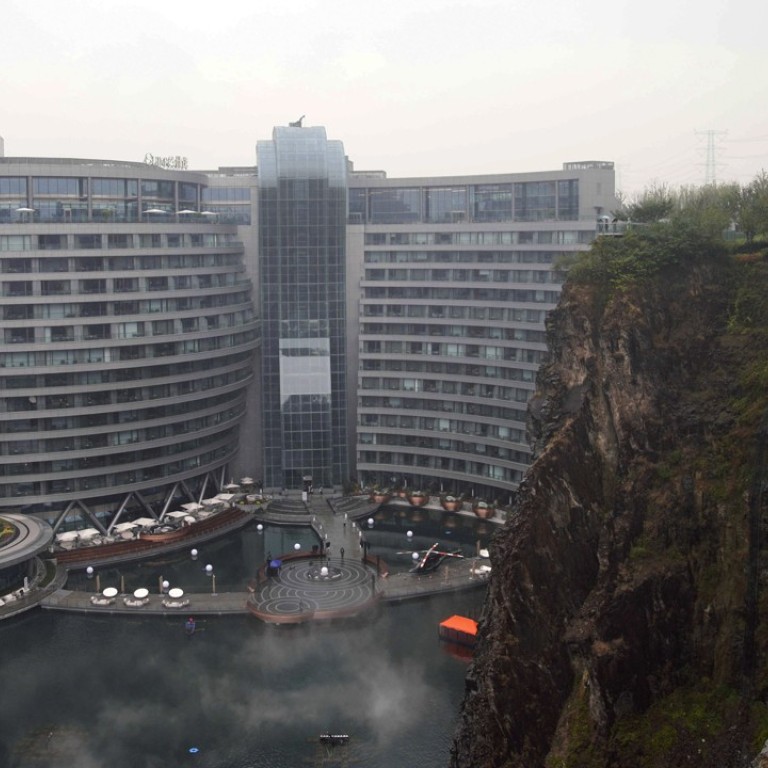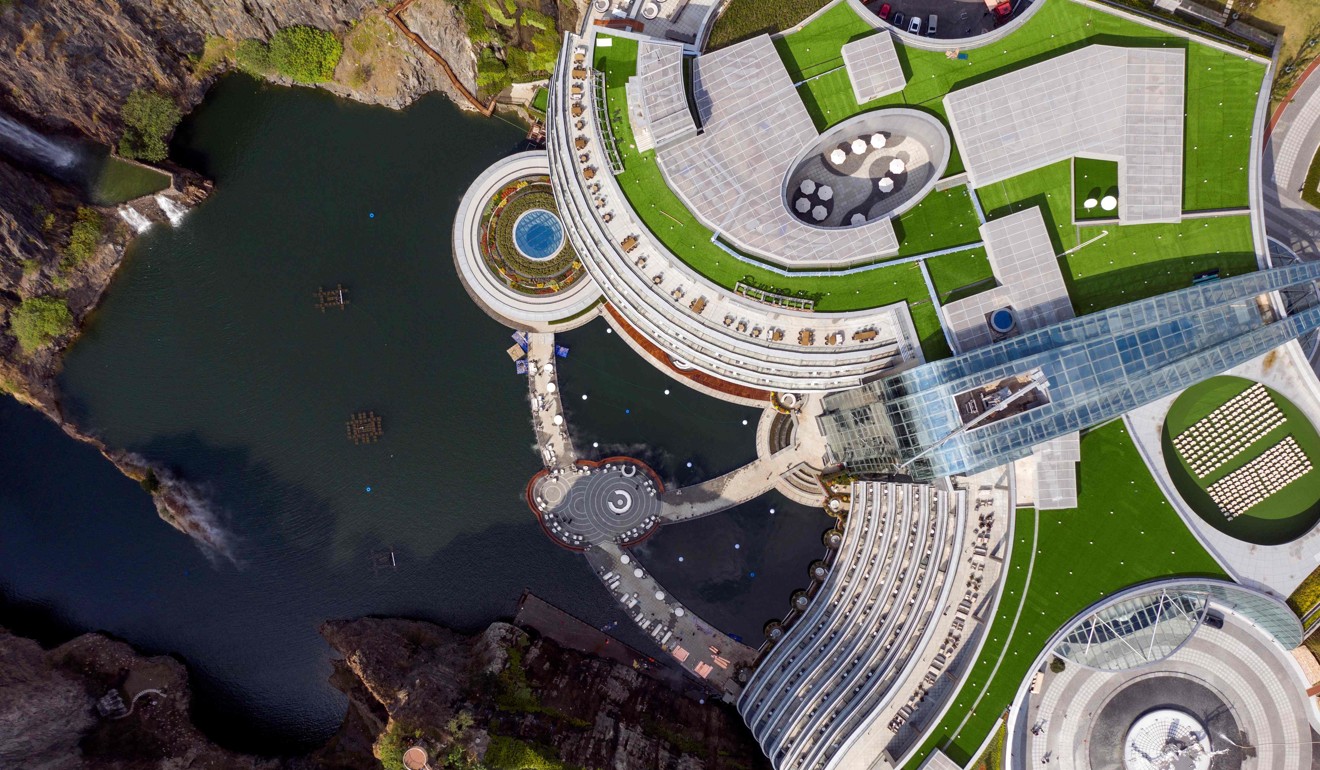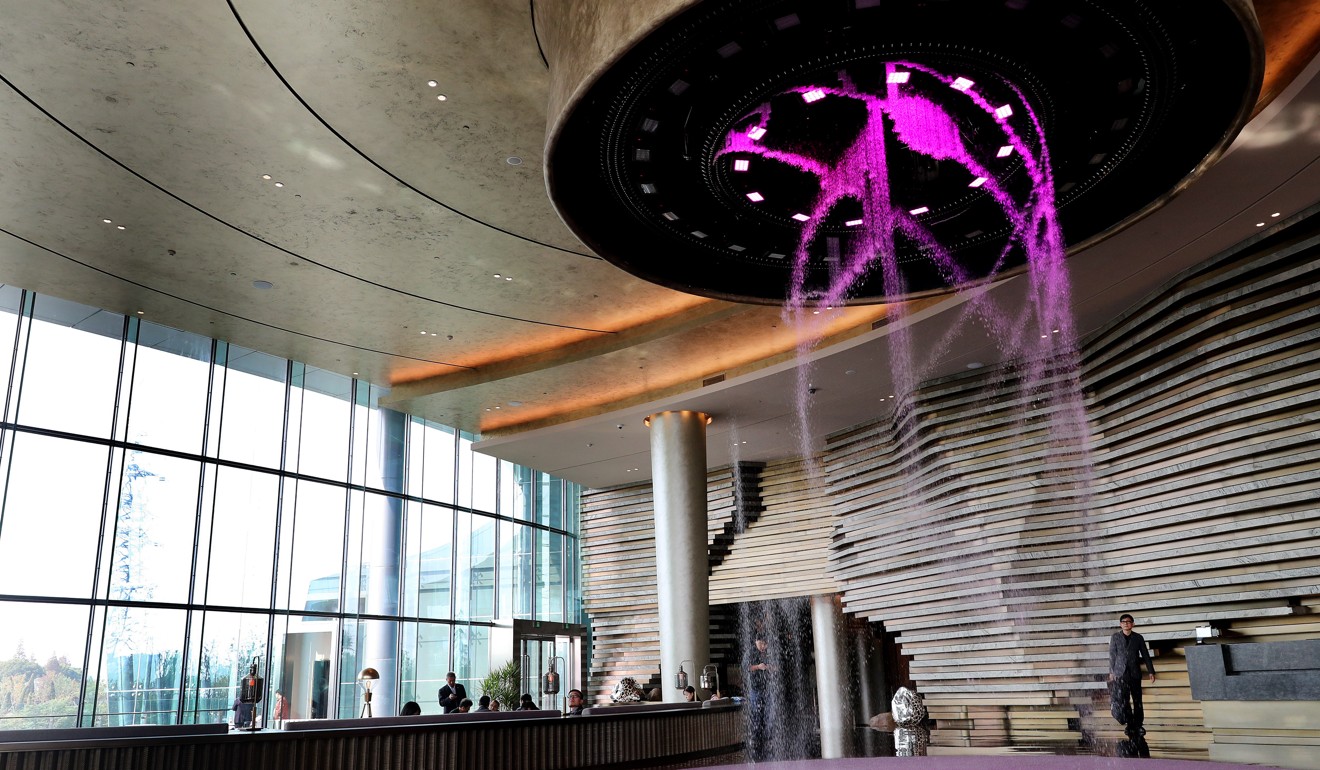
Shanghai’s ‘Quarry’ hotel set to tap growing taste for luxury, high-end business travel
- The 2 billion yuan (US$288.2 million) InterContinental Shanghai Wonderland Hotel in the Songjiang district of Shanghai officially opened on Tuesday
After a marathon construction process marred by technical setbacks, a luxury hotel built on an abandoned quarry near Shanghai has opened to the public – and so far the rush of bookings seems to vindicate the efforts by one of China’s riches men to create a local landmark.
After 12 years of development, the 2 billion yuan (US$288.2 million) hotel, developed by Shimao Group, officially opened on Tuesday.
Expectations are the luxury concept, branded as the InterContinental Shanghai Wonderland Hotel, will tap growing interest among mainland consumers for a taste of luxury. The 336-room hotel is located in southwestern Songjiang district in Shanghai.
Basic rooms are listed at 3,888 yuan per night, or nearly half of the average local monthly income.
“It is a high price, but we think it’s worth spending because this is a one of a kind hotel you cannot see anywhere else,” said Bao Lihua, a senior Shanghai resident who was among the first batch of guests during a soft opening last week. “People of my age think it’s a unique place that we need to visit during one’s lifetime.”
Rooms were completely booked out during the week of the official opening, according to Ctrip. The hotel declined to disclose occupancy figures.
The structure rises 88 metres from the floor of the abandoned quarry. Only two of its 18 floors are above the horizon level, while the two lowest are submerged in a lake that occupies the vast quarry pit.

Shimao chairman Hui Wing-mau, who ranked 22nd on Forbes’ China Rich List 2018 with personal wealth of US$8 billion, told a press conference that he came up with the idea of building a property in the quarry in 2006.
Construction on the hotel, said to be the world’s deepest, started in August 2009.
Tycoon says China credit squeeze won’t impact The Center stake
The site is about 40 minutes by car from the heart of Shanghai.
“The hotel itself is a tourist attraction,” said Richard Qiu, a senior manager with Greenland International Hotels Group. “Its uniqueness and the role as an eye-opener will attract not only tourists from other parts of China, but many Shanghai residents.”

Technical challenges in design and construction caused long construction delays. For example, it took contractors two years just to complete the foundation piling.
Since 2014, China’s hospitality sector has enjoyed a renaissance, lifted by a surge in personal luxury expenditure and a boom in business travel driven by internet-related companies.
Sentiment bullish on China’s hotel sector
“Consumers are willing to spend on top-class hospitality service,” said Yin Ran, a Shanghai-based angel investor and independent analyst. “But one giant quarry hotel is not enough to boost the hospitality sector and the economy.”
Worries are mounting that an economic slowdown amid the tit-for-tat US-China trade war would drag down occupancy growth.

According to the Shanghai Tourism Administration, occupancy among the city’s more than 70 five-star hotels stood at 72.58 per cent in June, down 0.66 percentage point from the same period a year ago.
Meanwhile, the average room prices dropped 1.47 per cent on year to 980 yuan per night, according to the tourism body.
However, analysts said the decline in occupancy rates would likely turn out to be short-lived.
“Industry participants view negative impact from economy slowdown as limited and expect continued positive RevPar (revenue per available room) growth,” UBS Securities analyst Chen Xin said in a recent research note. “Travel demand in tier 3 and tier 4 cities, especially business travel demand, is poised to benefit from growing high-speed rail network and rising disposable income.”

